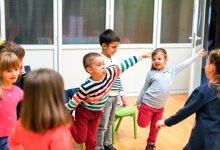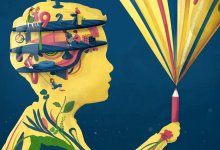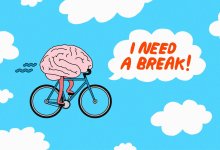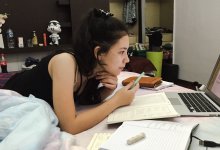Brain-Based Learning
Explore the mysteries of the human brain! Find out how discoveries in neuroscience provide insights into how students learn—and how to engage them in the classroom.
7 Retrieval Activities That Help Learning Stick
These low-pressure, brain-based learning strategies help students retrieve what they know, building confidence and motivation.Using Theater Games to Build Students’ Working Memory
By holding onto the information necessary to play certain games, students develop skills that lead to academic success.Your content has been saved!
Go to My Saved Content.3 Ways to Help Students Overcome the Forgetting Curve
Our brains are wired to forget things unless we take active steps to remember. Here’s how you can help students hold on to what they learn.Why Ages 2-7 Matter So Much for Brain Development
Rich experiences—from play to the arts and relationships—fundamentally shape a young child’s development.124.2kYour content has been saved!
Go to My Saved Content.Reducing Math Negativity
Teachers can facilitate positive learning experiences to help students develop favorable perceptions about their math skills.187Your content has been saved!
Go to My Saved Content.Brain Breaks for Your Classroom
Everyone Needs a Brain Break!20.6kYour content has been saved!
Go to My Saved Content.Improv in the Classroom
A collection of our popular articles and videos about how theater games and improvisation can spark creativity, build relationships, and boost academics and executive function skills alike.5.7kYour content has been saved!
Go to My Saved Content.Jump-Starting Academic Learning With Movement and Dance
The benefits of movement in the classroom aren’t limited to younger students. Pairing new words and concepts with gestures or dance moves locks in understanding—and active brain breaks prime students to learn even more.24.1kYour content has been saved!
Go to My Saved Content.Teach Kids When They’re Ready
A new book for parents on developing their kids’ sense of autonomy has some useful insights for teachers as well.106.4kYour content has been saved!
Go to My Saved Content.The Powerful Effects of Drawing on Learning
The science is clear: Drawing beats out reading and writing to help students remember concepts.71.8kYour content has been saved!
Go to My Saved Content.Activating Learning by Milling to Music
When students pretend they’re at a fancy party making small talk, a simple brainstorm for writing ideas becomes more lively, more cooperative—and more effective.21.3kYour content has been saved!
Go to My Saved Content.7 Learning Myths Your Students Probably Believe
From left- and right-brain thinking to the notion that talent beats persistence, these common myths can hinder student learning. Here’s how teachers can help.Using Movement to Teach Vocabulary
When students explore new words through movement, they understand them better, retain them longer, and feel more empowered to use them.5 Research-Backed Studying Techniques
Teachers can guide students to avoid ineffective studying habits in favor of ones that will increase their learning outcomes.53.5kYour content has been saved!
Go to My Saved Content.Scaffolding Like a Pro: Powerful Ways to Support Learning
With options ranging from tried-and-true to lesser known, these strategies for cognitive, metacognitive, and procedural scaffolding will help you set students up for success.










